ESG / CSR
Industries
What is the LCA of Solar Panels?
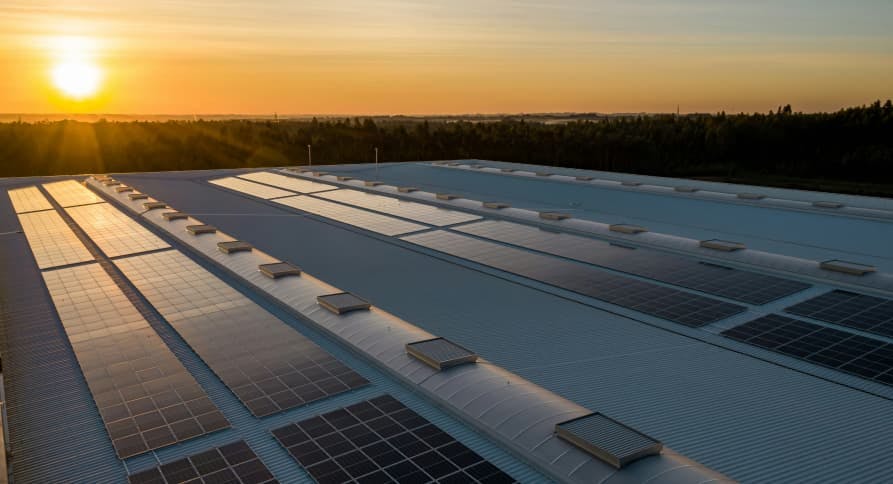


A massive challenge in the midst of climate change is learning to shift to the use of renewable energy sources in order to decrease the dependency on fossil fuels and reduce greenhouse gas emissions.
One of the many ways countries and businesses alike decide to combat the energy crisis is via the use of solar panels – but is the LCA of solar panels a cause for concern?
Solar panels refer to the photovoltaic panels, often installed on rooftops or in sunny areas, used to capture sunlight to be turned into solar energy and therefore electricity – but the LCA of solar panels is something to consider before investing in solar panels yourself.
In this article, we’ll explain what solar panels are, breakdown the LCA of solar panels, and other viable sources of renewable energy.
What are solar panels?
Solar panels, often blue in color and situated in high places such as atop of roofs to reach sunlight more easily, are panels specifically designed to capture sunlight to be turned into energy – either to be used for heating or electricity.
Solar panels are made of silicon and a type of semiconductor material – which work together to capture rays of sunlight. Once the sunlight has been successfully harnessed, it can then be converted from direct current (DC) into alternating current (AC). This is the type of electrical current that is used when you plug in your phone, blender, or laptop charger into a wall socket or electrical outlet.
Solar panels are beneficial because:
- They can prove to be a worthwhile investment for those who choose to install solar panels on their roofs as it can help to slash electricity bills over time;
- The LCA of solar panels can be lower than other forms of renewable energy seeing as solar planes require low-maintenance;
- Solar panels are versatile in the different appliances they can help to power – from central heating, air conditioning, charging electronic devices, or even keeping your kitchen running.
👉 The overarching benefit of solar panels is that they are a renewable energy source, which can help to reduce GHG emissions as long as the sun keeps shining.
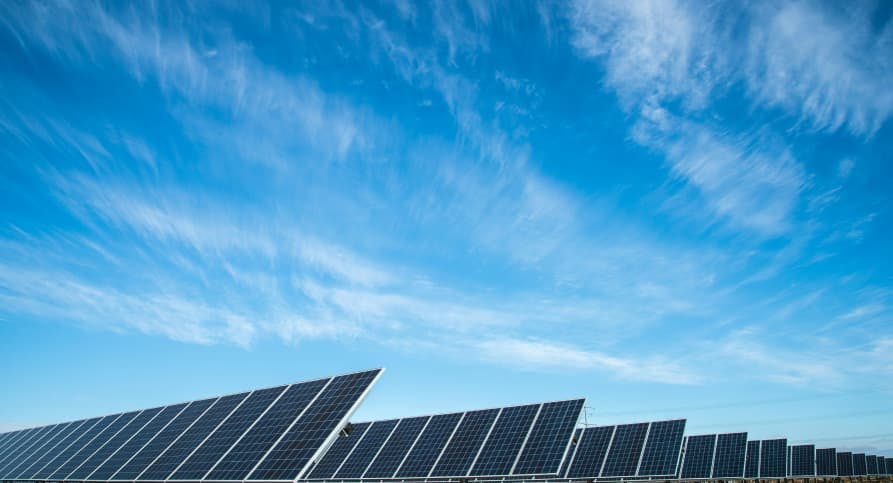
Quick recap: What is LCA?
An LCA, otherwise known as a Life Cycle Assessment, refers to the overall emissions created by a product or service over the course of its life.
The four main phases of an LCA are as follows:
- Goal & Scope – This step refers to assigning to product to be analyzed in conjunction with how many years it has been used (i.e., an iPhone that is 7 years old).
- Inventory Analysis – This step refers to the emissions/environmental impact created over the course of the product being manufactured as well as during its usage phase.
- Impact Assessment – This step refers to deciphering which areas where the product has created the most harmful impact: such as by depleting resources, exploiting land usage, contributing to water pollution or ozone depletion.
- Interpretation – This final step refers to the future precautions that can be taken to preserve natural resources, human health, and our ecosystem.
An LCA is important because it can help users and manufacturers alike determine if a product is worth buying or how that product can be improved to fit new ecological standards and environmental regulations.
👉 In other words, a life cycle helps to pave the way for future models and improvements for a product or service – which is especially important in the midst of climate change.
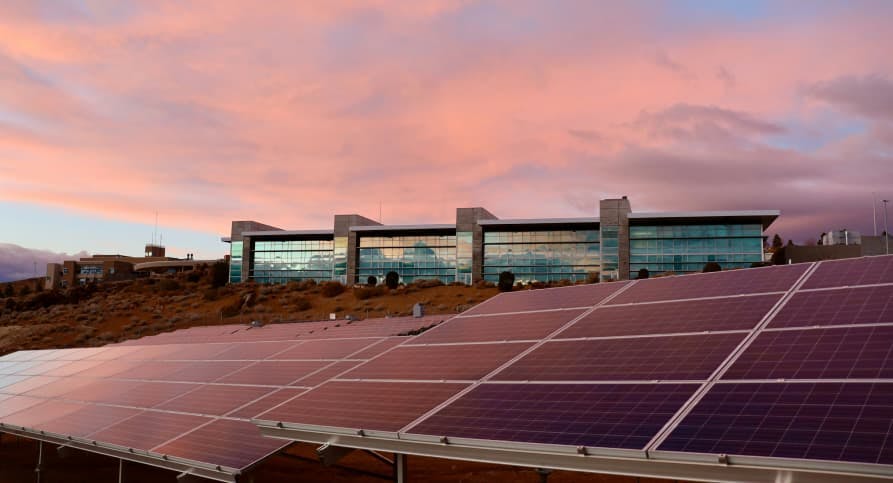
Let’s break down the LCA of solar panels
The LCA of solar panels can be broken down by evaluating its upstream, operational, and downstream processes – which include the manufacturing stages of solar panels, the usage phase, and how solar panels are disposed of after being used.
Upstream Process
The upstream process in the LCA of solar panels refers to the raw materials extracted and how the solar panels are manufactured – which includes the actual installation of the solar panels.
According to the National Renewable Energy Laboratory, an umbrella organization under the U.S. Department of Energy – the upstream processes for the LCA of solar panels contributes anywhere from 60 to 70% to the environmental impact of photovoltaic panels (PVs).
This reveals that one of the primary areas for improvement is to seek out more sustainable materials to construct solar panels in the first place.
Operational Process
The operational process in the LCA of solar panels refers to the usage phase of the PVs themselves – such as the amount of power generated from solar panels and the environmental impact created via necessary maintenance to ensure the solar panels remain effective and energetically lucrative.
This process only contributes to around a quarter (21 to 26%) of the environmental impact of solar panels.
Downstream Process
The downstream process in the LCA of solar panels primarily alludes to the process of disposing of solar panels once they are no longer functional. This is the least ecologically intensive facet to the LCA of solar panels – with the downstream process only accounting between 5 and 20% of the overall LCA of solar panels.
Examples of jobs under a bioeconomy include:
- Jobs which help to promote the importance of mitigating deforestation and conserving non-renewable resources;
- Jobs to help develop and monitor various biotechnologies;
- Jobs dedicated to finding new ways to harvest and utilise renewable energy resources.
Examples of products under a bioeconomy include:
- The use of biodegradable products or materials, such as a konjac sponge for washing your fash instead of an electric brush;
- Wood-based furniture that mitigates the use of plastic or other non-renewable materials;
- Biofuels which are being developed to help decarbonise the aviation industry;
- Fashion and apparel items which make use of ethically sourced and ecological materials.
👉 Both jobs and products developed under the ideals of a bioeconomy are essential to spread awareness and effectively promote long-term sustainable practices.
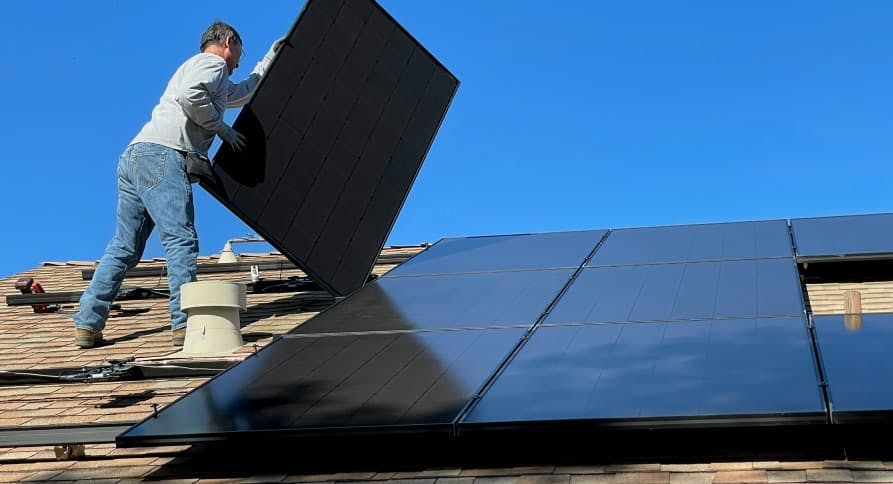
If the LCA of solar panels is good, what are the other disadvantages of solar panels?
Solar panels have proven to be an effective and long-term solution for many homeowners and businesses alike to transition to the use of clean energy – but there are some cons to the use of solar panels, seeing as they can be expensive and difficult to move once installed.
There are some disadvantages to the use of solar panels, even if the LCA of solar panels is good – such as:
- Expensive – It can cost almost up to $20,000 to install solar panels, which means while the LCA of solar panels is pretty good – it isn’t a viable option for developing countries or low-income households and communities to reduce emissions.
- Lack of Portability – Solar panels are stuck where they are once they’re implemented, meaning that while solar panels are beneficial to reducing the use of fossil fuels – they can’t be moved from one place to another. This is something both business and home owners should consider.
- Space Constraints – Even if there is a lot of sunlight in the area, installing solar panels requires a lot of space – meaning that densely populated cities may not be able to use solar panels to their full potential.
👉 The LCA of solar panels is not the only piece of criteria to consider when choosing the right form of renewable energy for your business or home. Other factors such as location, budget, and time constraints should also be considered – meaning that while the LCA of solar panels is good, it still may not be the best source of renewable energy for everyone.
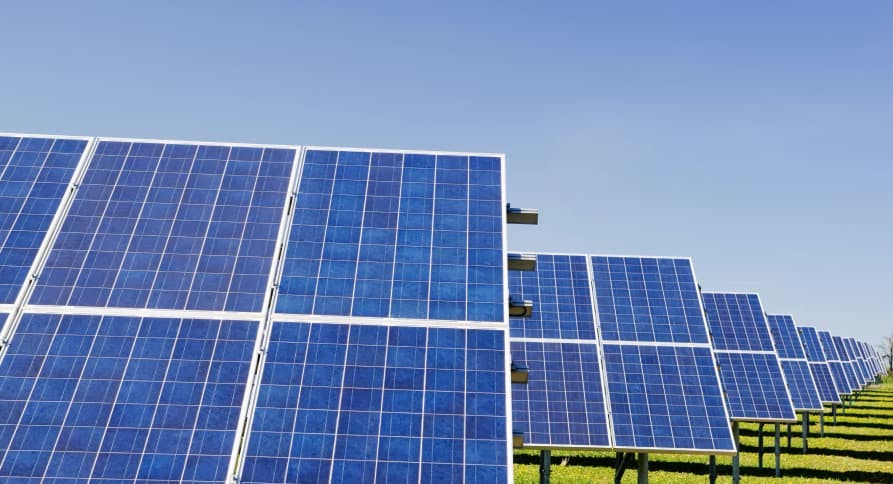
What other forms of renewable energy can be used besides solar panels?
If the LCA of solar panels has convinced you it isn’t the right renewable energy due to your geographical or budget constraints, there are several other types of renewable energy sources that can be used to power your home or business with clean energy – such as wind turbines, biomass, and hydropower.
Wind Turbines
Wind turbines, often found in large numbers which are referred to as wind farms – are another way of harvesting renewable energy resources. This type of renewable energy is best suited in windy countries, such as Nordic countries in Europe which receive less sunlight and cannot reap the benefits of solar panels.
Biomass
Biomass refers to the renewable material made from plants which can be converted into fuels or used directly to help heat homes and offices. However, the con of biomass, similar to solar panels – is that they can be expensive to produce.
Hydropower
Hydropower is the energy used from water flow – and is one of the most dependable sources of renewable energy in the United States. This is a good choice for businesses, countries, or local governments that are situated alongside the coast or have easy access to water.
Overall, the LCA of solar panels provides further incentive for people to choose solar panels as a source of renewable energy – but there is always room for improvement. Surely, as we move towards greater sustainability, more ethical and eco-friendly materials will be used and help to reduce the environmental impact of solar panels even more.
The LCA of solar panels will continue to improve, but even if it doesn’t seem like the right option to reduce your company's emissions – Greenly can help you find the more suitable and beneficial choice for you.
What About Greenly?
If reading this article about what a bioeconomy is and why it is important has made you interested in reducing your carbon emissions to further fight against climate change – Greenly can help you!
It can be challenging to make the necessary everyday choices needed to help tackle climate change, such as how to align your business with the principles of a bioeconomy – but don’t worry, Greenly is here to help. Click here to schedule a demo to see how Greenly can help you find ways to improve energy efficiency and decrease the dependency on fossil fuels in your own company.
Greenly can help you make an environmental change for the better, starting with a carbon footprint assessment to know how much carbon emissions your company produces.




